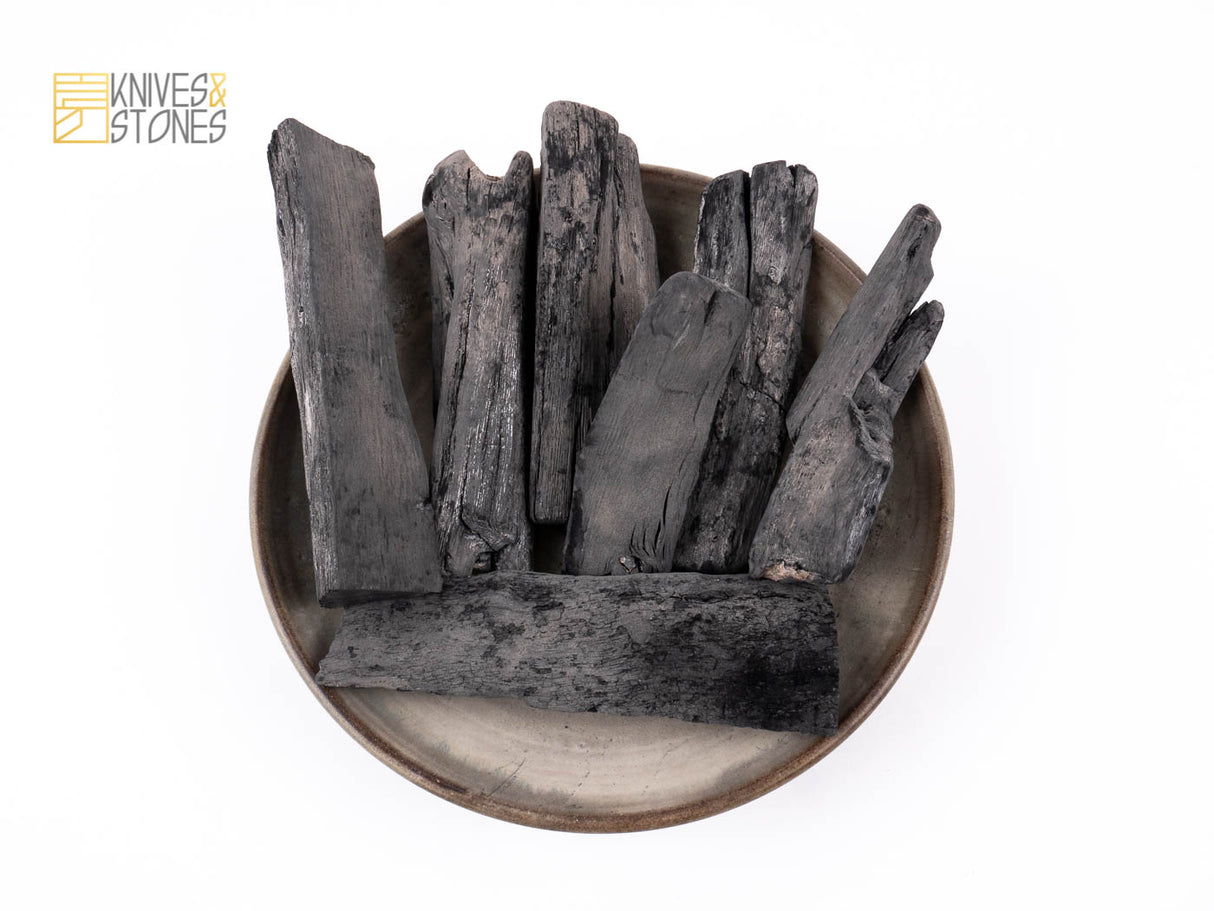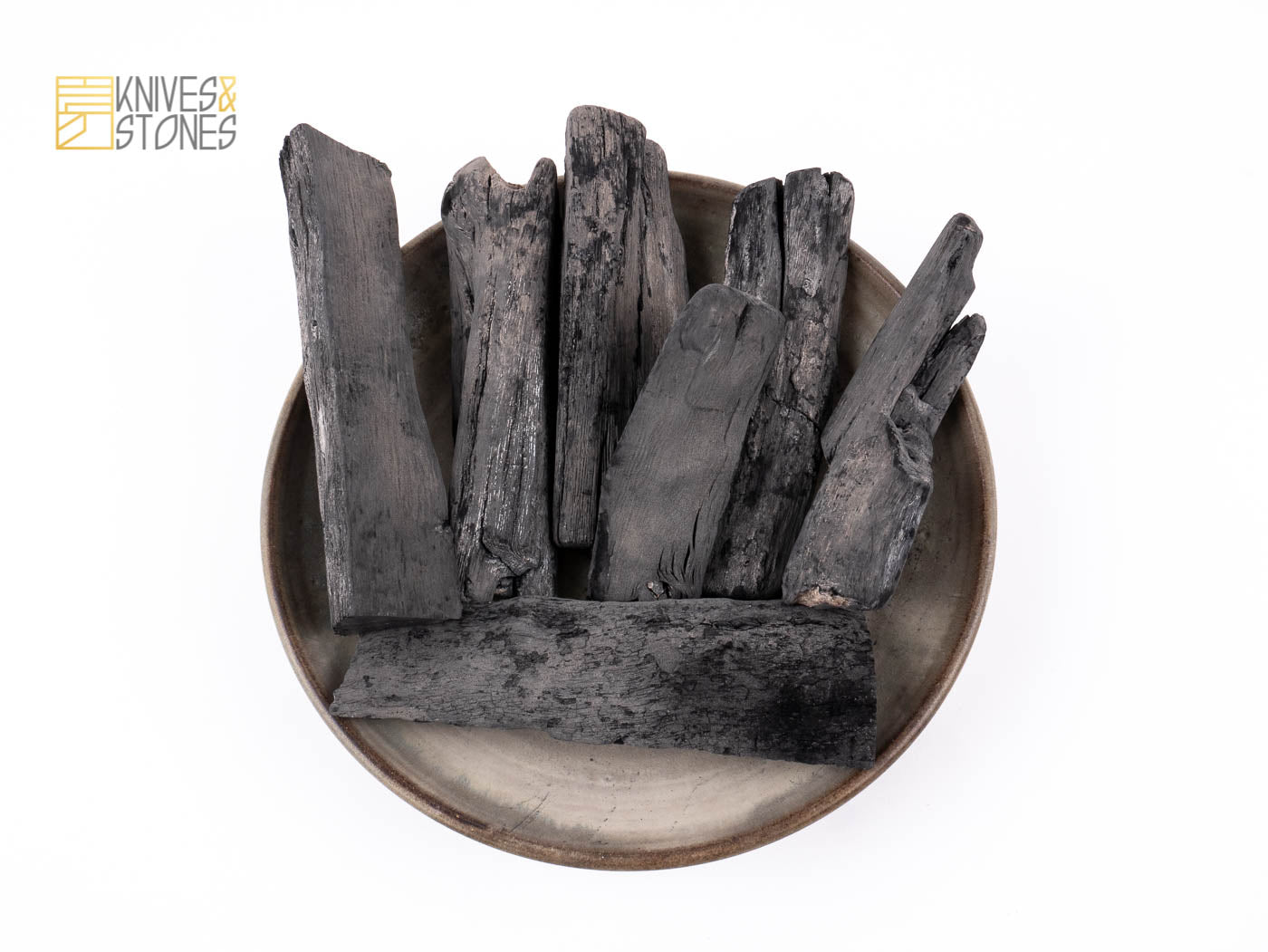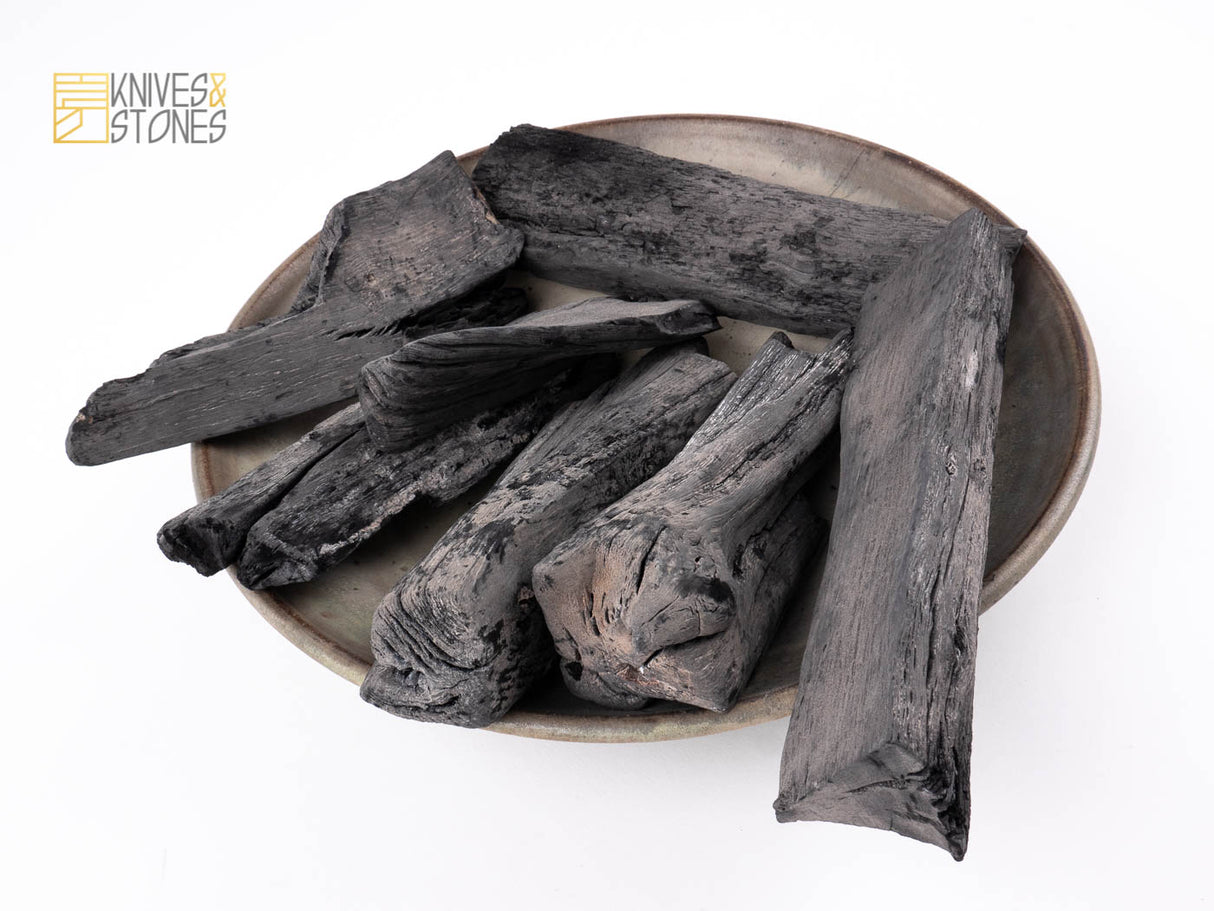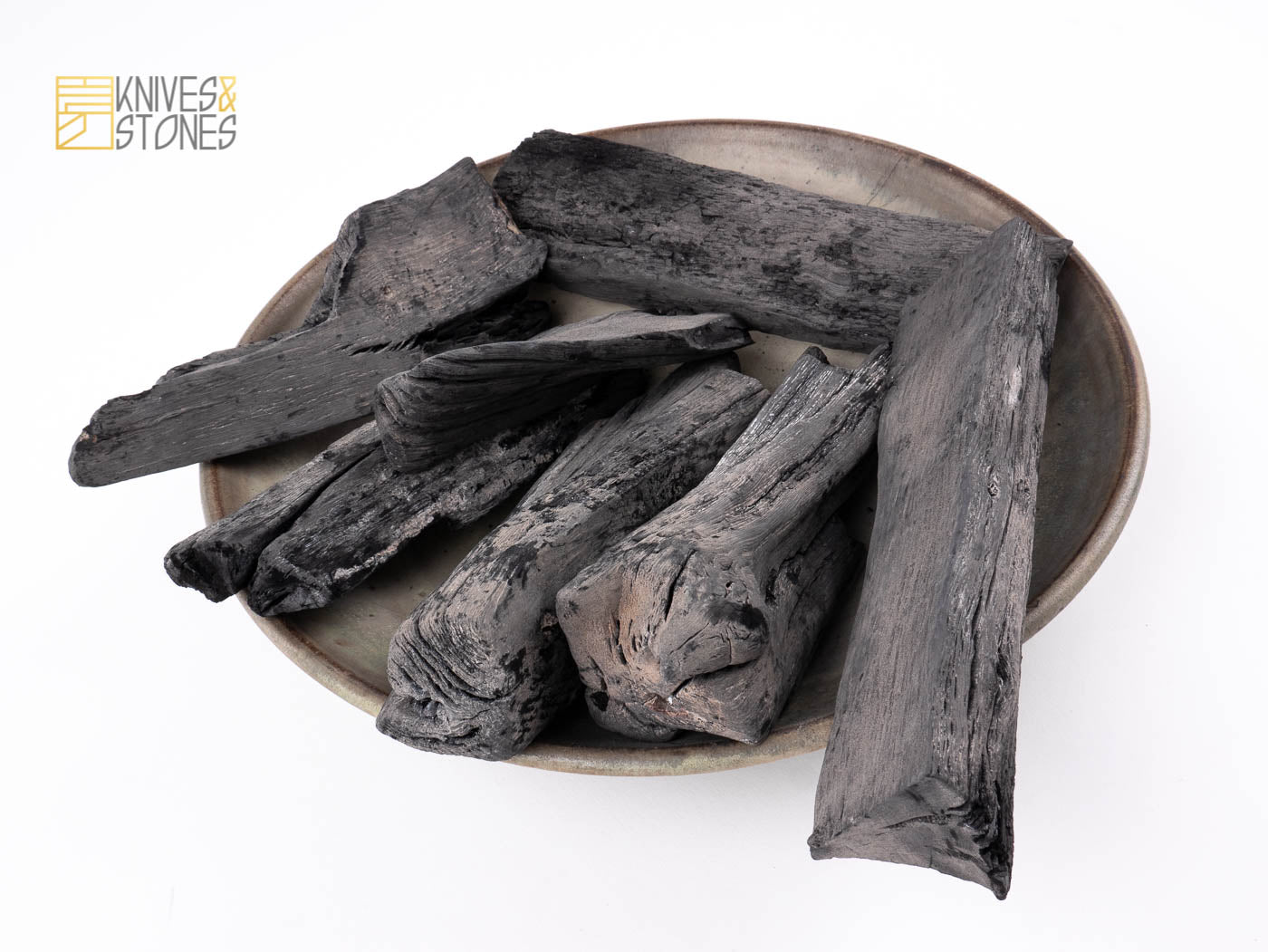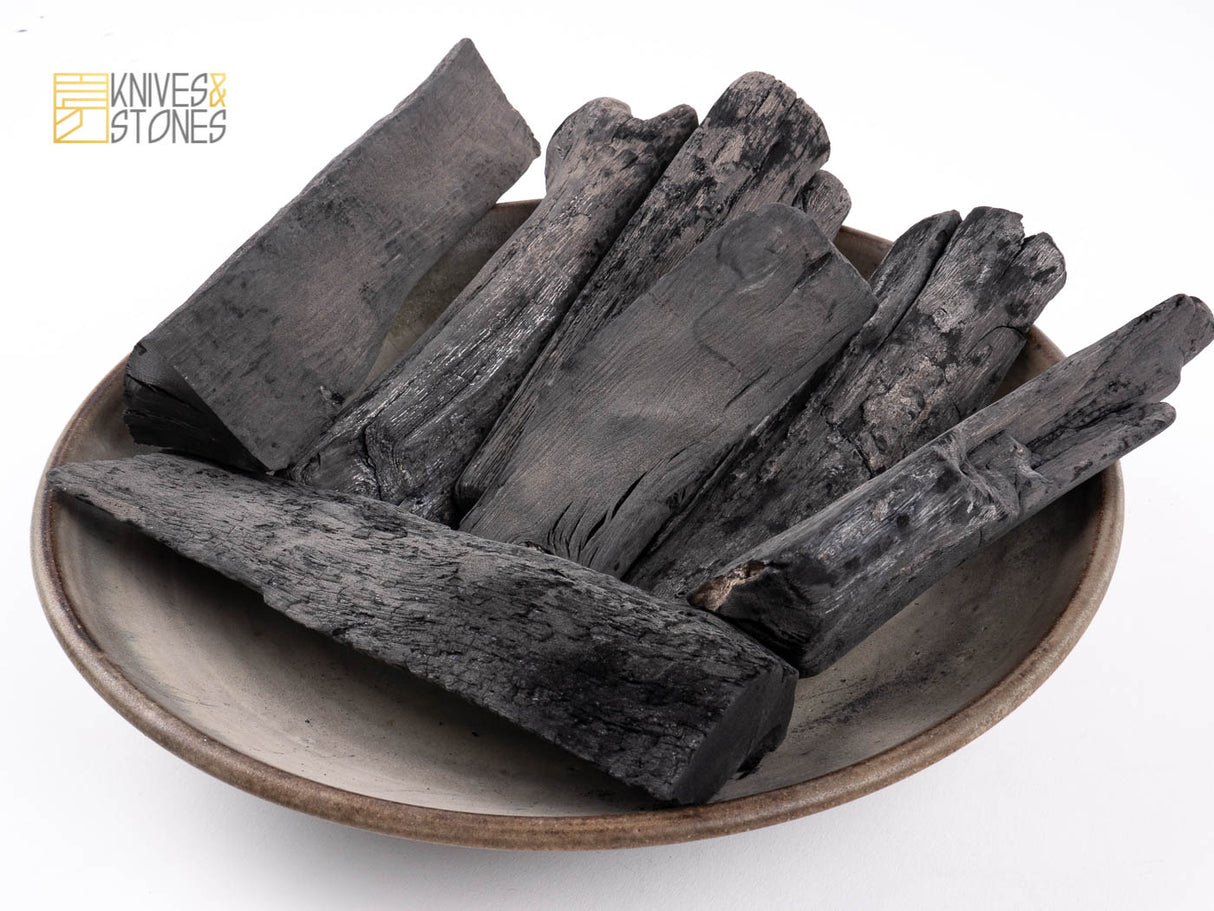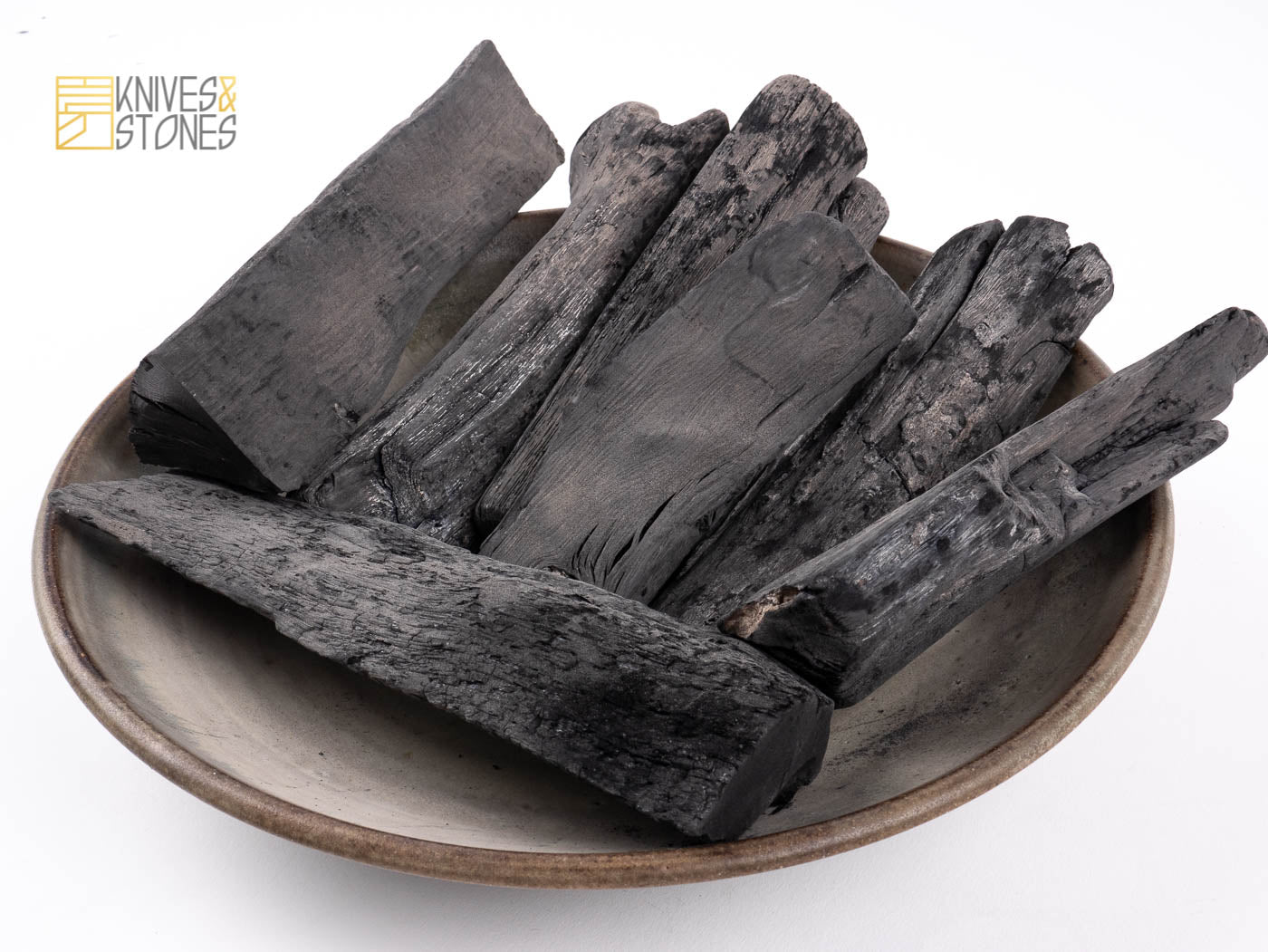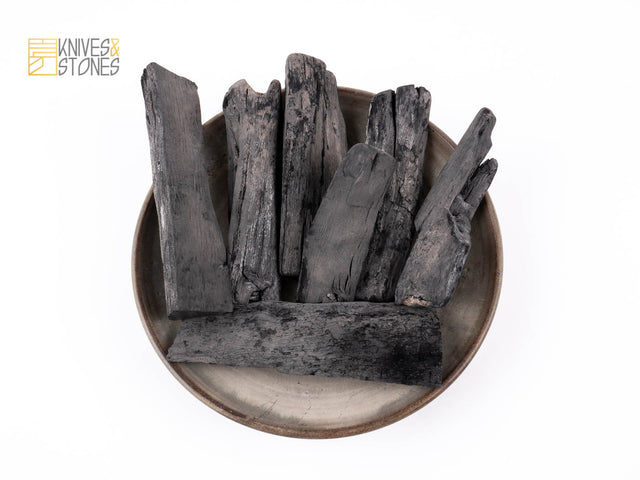Binchotan Japanese White Charcoal from Tosa Region (土佐備長炭) 2KG
Binchotan Japanese White Charcoal from Tosa Region (土佐備長炭) 2KG is backordered and will ship as soon as it is back in stock.
Couldn't load pickup availability
This item ships to AUSTRALIA ONLY
Binchotan Japanese Charcoal Tosa Region (土佐備長炭), authentic Japanese white charcoal from Shikoku Island. The Binchotan from Tosa is of very high quality and is excellent value for money.
====
What is Binchotan
Binchotan (備長炭), also known as Japanese white charcoal, is considered the most premium charcoal used for traditional cooking. It is produced using Japanese Ubame oak trees in a special Bincho Klin at around 1000 degrees Celsius, for up to 14 days. A very time-consuming process.
The resulting charcoal is almost 100% carbon, Binchotan therefore producing very little smoke when burning, and leaving little ash and have a special metallic sound when tapping together. It is able to produce a very high heat (about 1200 degrees) and maintain a steady heat release for serval hours. Pure (without odour), high heat and long-lasting heat release really brings out the favour of the food, as a result, Binchotan is loved by top Japanese Yakitori restaurants.
The total production of Binchotan in Japan is about 1800 tons per year. Consumers should pay attention to those non-authentic “Binchotan” produced outside of Japan with timber other than Ubame Oak using non-traditional techniques. Such charcoal cannot produce enough heat and burns out very quickly.
====
Note
- Due to its high hardness, it is quite hard to light up the charcoal. It is advised to first light up the charcoal on a gas burner before transferred into the grill.
- Use outdoors or in a well ventilated area
- The charcoal will light up for hours, please make sure the fire is fully extinguished after use.
====
Further reading:
https://journal.rikumo.com/journal/making-of-binchotan-charcoal
https://en.wikipedia.org/wiki/Binch%C5%8Dtan
Payment & Security
Payment methods
Your payment information is processed securely. We do not store credit card details nor have access to your credit card information.
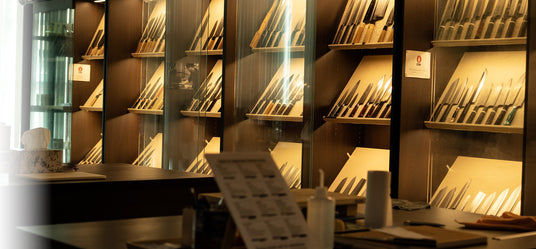
Est. 2014
Knives and Stones is the leading Japanese kithchen knife shop in Sydney. We source the best Japanese hand-forged and high-end kitchen knives direct from the leading makers in Japan.

